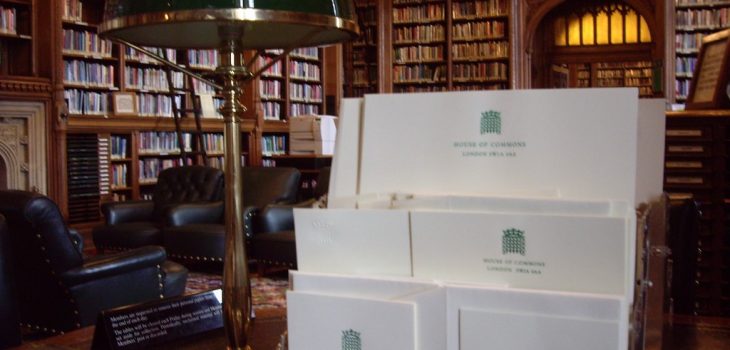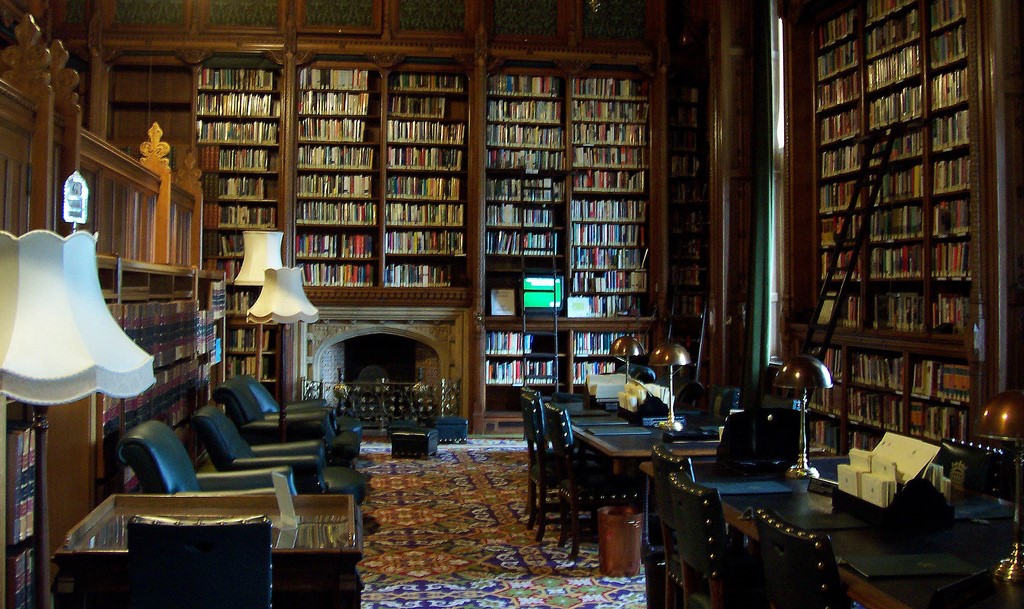The floor to ceiling bookshelves, ornate fireplaces, Victorian wooden features, leather desks with letter-headed paper create the ambiance of a staid and traditional gentlemen’s club. But I also learned how, like all modern libraries, its work goes far beyond being a place for MPs to read and access books, newspapers and journals.
The House of Commons Library is an independent research and information service serving the needs of elected Members of Parliament and their staff. It gives politically impartial briefing to Members of Parliament of all parties and their staff. They receive a wide variety of questions and last year dealt with approximately 29,000 enquiries, many required at very short notice, as little as a few hours.
Their seventy subject specialists include researchers with expertise in medicine, engineering, climate science and economics, including professional statisticians, economists, lawyers and doctors.
These experts publish research and analysis on topical issues and legislation. Because certain topics and questions come up repeatedly, the library produces briefings on issues in areas including health, transport, and environment, which are also made available to the public through its website. Unsurprisingly, they have recently responded to an explosion of enquiries concerning the impact of Britain’s exit from the European Union.
The library is required to remain strictly impartial. It is not its role to support the case for the policies of the government or of the opposition parties. So users can be confident that its reports are objective and rigorously fact-checked.
Open health policy resources
A specific portal for health briefings and articles can be found here.
Here are some examples of briefings that may be of interest to researchers and students at LSHTM.
Obesity: a public health crisis?
An overview of obesity in the UK, including childhood obesity and measures to combat it.
Diabetes in England: where are the hotspots?
This report also includes the full data on which it is based, provided in Excel.
An overview on antimicrobial resistance, its causes, and consequences. It provides a summary of some UK and international action in this area.
One NHS, many nationalities: 2017
A post looking at the statistics on NHS staff from other EU countries: what jobs do they do in the NHS, what parts of the country do they work in, and where are they from?
You can also sign up for email alerts to hear whenever new briefings and articles are published in your chosen subject areas.
‘POSTnotes’ are four-page summaries of public policy issues based on reviews of the research literature and interviews with stakeholders from across academia, industry, government and the third sector. They are peer reviewed by external experts. Recent topics include Health in Private-Rented Housing; The Ageing Process and Health; and Trends in Infectious Disease.
Support for researchers
The website also provides information on how researchers can increase their impact on Parliament, helping to shape policies and the policy agenda through participation in the work of select committees, all-party parliamentary groups and public bill committees.
There is also a Universities Programme providing training and outreach, academic fellowships and POST fellowships, which provide for PhD students to spend three months working in Parliament, typically writing briefings on public policy issues.
The House of Commons Library enjoys a well-deserved reputation for providing high-quality, impartial briefings for members of parliament. What many people do not realise is that the information produced also provides a valuable resource to students, researchers and the general public beyond the confines of Westminster.








